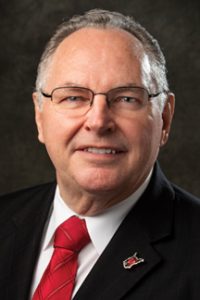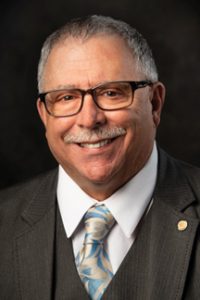By Autumn Shelton, WV Press Association
CHARLESTON, W.Va. – In an effort to increase the state’s workforce participation rate, members of the Senate Workforce Committee met on Friday to hear from various agency leaders regarding their potential participation in a soft jobs for seniors program.
This program, first presented in February by Senate Workforce Committee Chairman Rollan Roberts, R-Raleigh, would help seniors find “easy and convenient” employment to supplement their income, increase their quality of life after retirement and fill vacant positions throughout the state.
The first to testify before the committee was Jeff Green, deputy executive director of WorkForceWV.
He said that WorkForceWV may be able to assist with obtaining federal grants through the WorkForce Innovation and Opportunity Act, provide skills training through the Incumbent Worker Program, and to provide financial assistance with on-the-job training grants.
“WorkForce can supplement up to 75% of the wages that an employer would pay to an individual,” Green said.
Next, Commissioner Robert Roswall of the Bureau for Senior Services, mentioned some concerns those with his agency have expressed.
“The concerns that we had was the people that have retired . . . they did it because they wanted to enjoy their lives,” Roswall said.
He added that before seniors consider workforce re-entry, there should be a series of informational sessions held at senior centers throughout the state to discuss financial matters, including how additional income would affect Social Security benefits, insurance benefits, investments and more.
Senator Mike Caputo, D-Marion, added that he has concerns as well, especially when it comes to those who may lose Social Security disability benefits if they receive extra income.
“It’s not as easy as some may want to think it sounds,” Caputo said, noting that when he visits senior centers in his district, he never hears that seniors want to re-enter the workforce. Instead, he said he hears that seniors would like legislation, like lower taxes, to help them live a better life in retirement.
Roswall responded that in some cases seniors need extra income, but mostly only wish to work on a part-time basis.
“They don’t want to do something that’s going to reduce what they already have, or hurt them,” Roswall said.
Caputo responded, “But, would you agree that you work your entire life at whatever you do for the so-called Golden Years – sometimes they’re not so golden – so you can enjoy what time you have left and not have to work?”
“No disrespect to this initiative, or those that support it, but I just, you know, I just think we are going in a path that nobody’s wanting us to go in,” Caputo continued. “But, I may be wrong. I’ve been wrong lot’s of times.”
Roswall concluded by presenting a case in which a woman, who has been a family caregiver most of her life, has little work experience and low Social Security benefits.
“She is looking for work, but having no luck,” Roswall said, adding that most senior centers primarily consist of females who are either divorced or widowed and receive low income.
“I would just rather work on things to try to make their life more secure while they are working rather than worry about it after,” Caputo said. “But, that’s just me.”
Jennifer Brown, executive director of the Council on Aging, added that her agency could support job fairs at senior centers and provide assistance with questions about Medicaid, Medicare and Social Security.
She stated it would be beneficial to find ways to increase the health of the state’s workforce, regardless of age, which is a contributing factor to the low workforce participation rate.
Other agency leaders, including those from the Bureau for Family Assistance, the Division of Personnel, the Department of Education and the Department of Tourism stated that they could help with training and providing job opportunities, such as seasonal opportunities at State Parks, part-time school positions, and much more.
The committee also advanced the engrossed committee substitute for HB 2515, which would “require agencies to develop and maintain an inventory of available services for single parents wanting to obtain degrees, secure training or reenter the workforce.”
This bill passed the House on Feb. 16. It is now going before the Senate Government Organization Committee for further consideration. —






